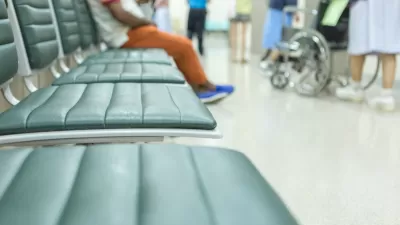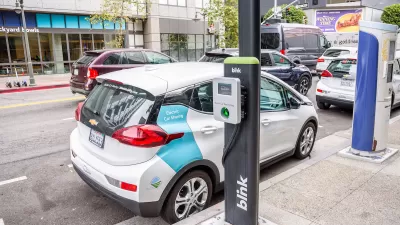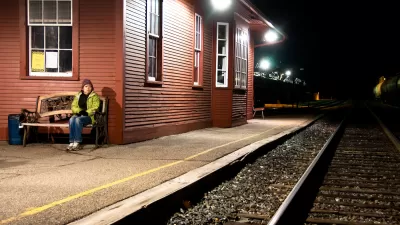Streetsblog calls attention to the lack of representation of women, people of color, and other groups in state departments of transportation that are largely dominated by white men.

High-ranking officials at state departments of transportation are much more likely to be male and white, according to data from the American Association of State Highway and Transportation Officials.
Two states — Wyoming and Nebraska — had no female executives, while all but seven states had more than 50 percent male executives. And in 11 states, including Georgia, Oklahoma, and Pennsylvania, 100 percent of executives identified as white.
According to the Streetsblog USA staff, this is troubling because the makeup of these agencies doesn’t reflect the populations they serve. “Because federal road funding largely flows through their offices, state-level decision makers have a massive influence over, for instance, which neighborhoods are targeted for demolition to make way for highway projects and which are left untouched — and needless to say, Black, brown, and low-income communities have historically (and presently) been the ones that get bulldozed the most.”
The article points out that women, people of color, nonbinary people, people with disabilities, and other underrepresented groups have different and unique needs when it comes to transportation, mobility, and safety. “As an absolute bare minimum, though, it's essential to ask why marginalized people so often aren't in the room when state DOTs make decisions to represent their own needs— and what impact their absence is having on all of our communities.”
To address similar issues, the Washington state legislature is considering a bill that would give transit riders direct representation on transit board.
FULL STORY: Data: State DOTs Look Nothing Like the Residents They Serve

Alabama: Trump Terminates Settlements for Black Communities Harmed By Raw Sewage
Trump deemed the landmark civil rights agreement “illegal DEI and environmental justice policy.”

Study: Maui’s Plan to Convert Vacation Rentals to Long-Term Housing Could Cause Nearly $1 Billion Economic Loss
The plan would reduce visitor accommodation by 25% resulting in 1,900 jobs lost.

Planetizen Federal Action Tracker
A weekly monitor of how Trump’s orders and actions are impacting planners and planning in America.

Waymo Gets Permission to Map SF’s Market Street
If allowed to operate on the traffic-restricted street, Waymo’s autonomous taxis would have a leg up over ride-hailing competitors — and counter the city’s efforts to grow bike and pedestrian on the thoroughfare.

Parklet Symposium Highlights the Success of Shared Spaces
Parklets got a boost during the Covid-19 pandemic, when the concept was translated to outdoor dining programs that offered restaurants a lifeline during the shutdown.

Federal Homelessness Agency Places Entire Staff on Leave
The U.S. Interagency Council on Homelessness is the only federal agency dedicated to preventing and ending homelessness.
Urban Design for Planners 1: Software Tools
This six-course series explores essential urban design concepts using open source software and equips planners with the tools they need to participate fully in the urban design process.
Planning for Universal Design
Learn the tools for implementing Universal Design in planning regulations.
Caltrans
Smith Gee Studio
Institute for Housing and Urban Development Studies (IHS)
City of Grandview
Harvard GSD Executive Education
Toledo-Lucas County Plan Commissions
Salt Lake City
NYU Wagner Graduate School of Public Service





























